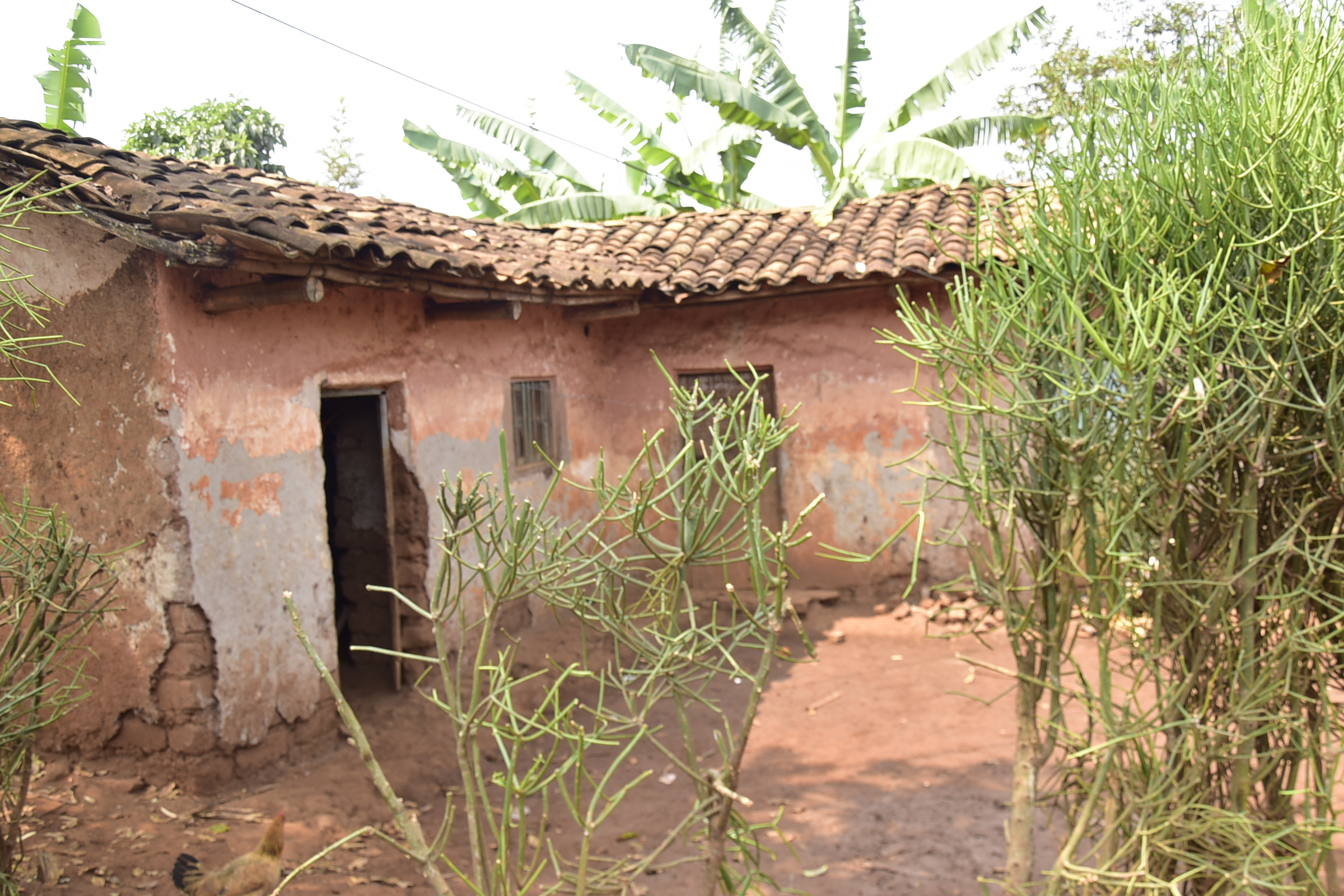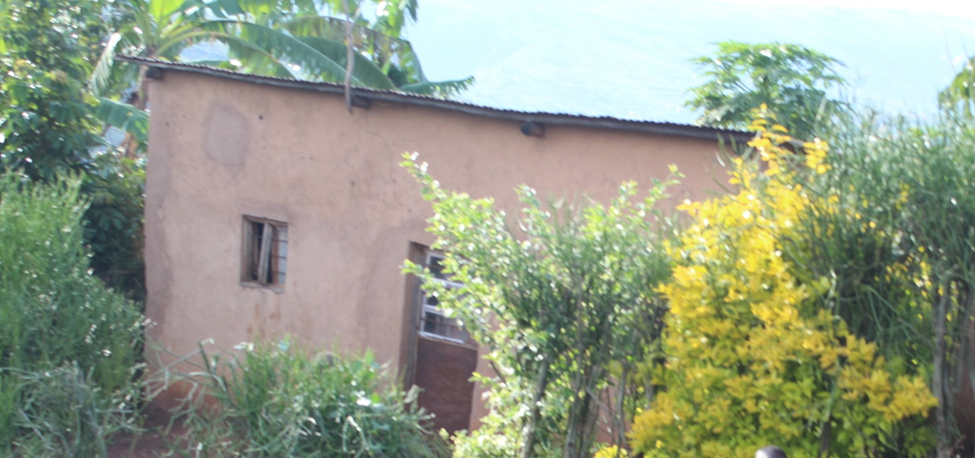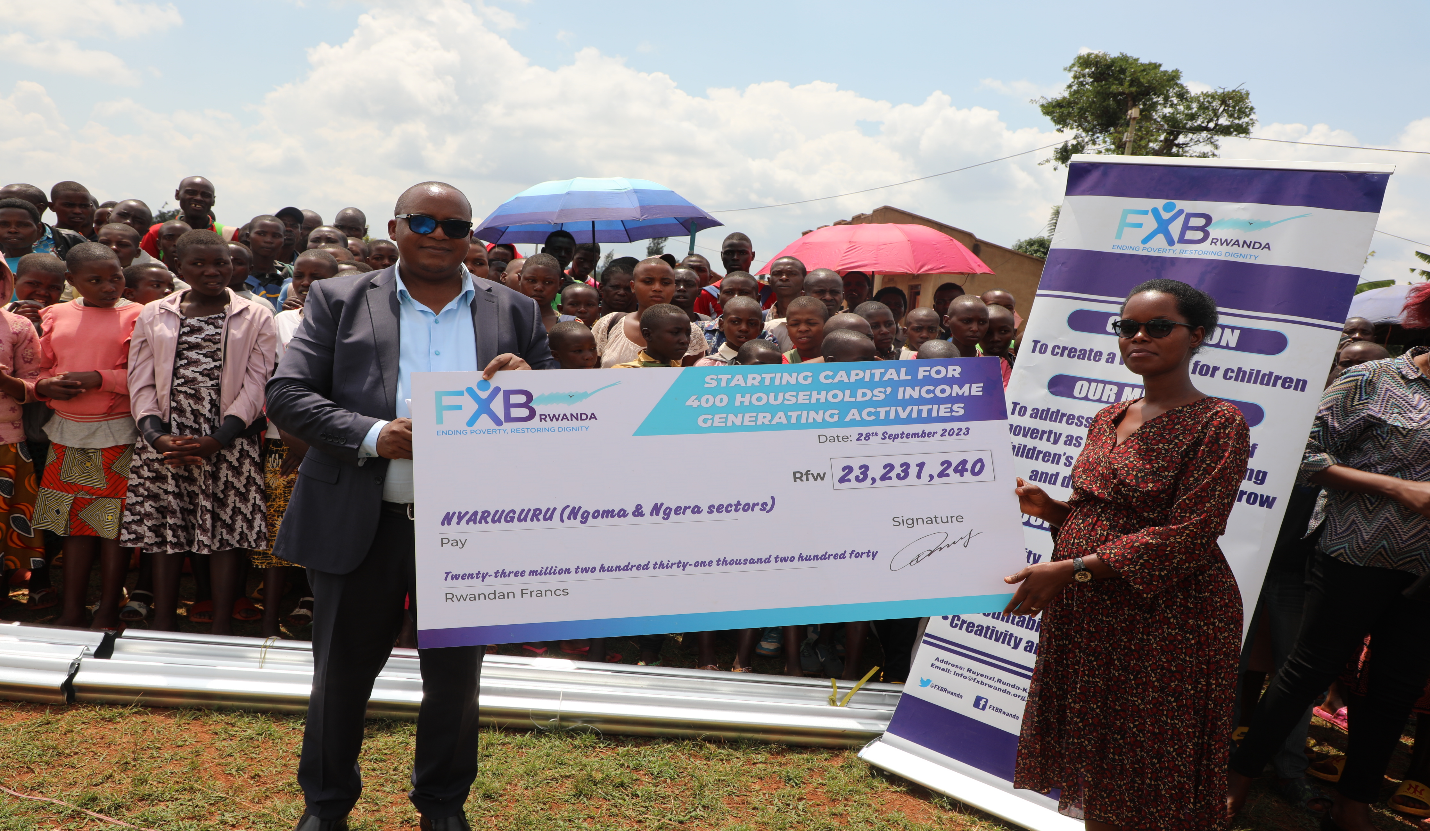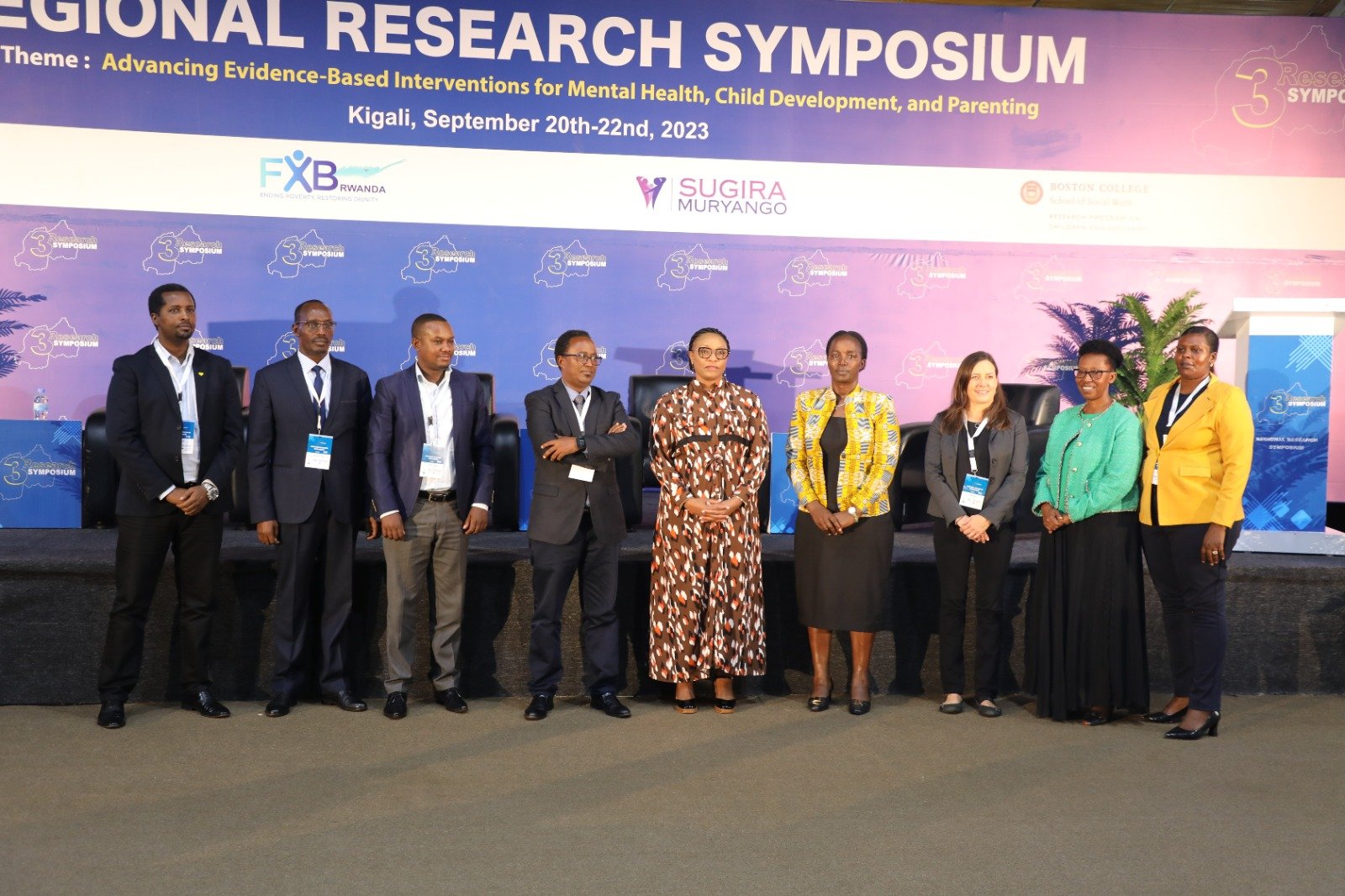H. Emmanuel and his family (wife and four Children) live in Mukura Sector of Huye district. In 2012, Emmanuel came to know that he was HIV positive when her girlfriend and he went to a health center for HIV testing as they were readying themselves for marriage. He was so depressed, discouraged to continue his work for a living, and had no hope for the future. Emmanuel’s family was poor, with no source of income or even cultivating land to generate daily food. They should only live of working for food from neighbors. In that depressed situation, Emmanuel’s girlfriend agreed to marry him to be near him and take care of him. Thus, the two started the new family as discordant couple without shelter, food, and anything to generate a living. The couple lived with the husband’s mother in her small old house.
In the following 10 years, Emmanuel’s family reached 7 members as they had given birth to 4 children. At this point, the house of his mother was no longer able to accommodate them. Emmanuel decided to leave this house, starting his harshest living part of extreme poverty as the family was now to cultivate for others for daily food and house rent fees. Such a living condition worsened the life of Emmanuel and his practices of coping with AIDS burden. Emmanuel faced deeper depression, and increased viral load due to ART abandonment. This family’s children also fell into malnutrition as the whole family should skip numerous meal times and days without eating. Specifically, the family would spend the whole day without eating to save up to 5000 Rwf fees for house rent.
 Emmanuel paid 5000 RWF for the lent of this house
Emmanuel paid 5000 RWF for the lent of this house
In 2022, Emmanuel’s family was enrolled in Igire-Turengere Abana Program. Through its economic strengthening intervention, Emmanuel relished Internal Saving and Lending Group’s benefits. He started networking with group members, sharing one another their lives’ stories, as well as counselling one another on moving forward. As a result of saving group involvement, Emmanuel regained hope for life and re-started to work hard to help his family get basic needs. In the saving group, Emmanuel and his colleagues were helped with financial literacy. Emmanuel started doing regular savings, and after 6 months, he got a loan of 40000 Rwf from Internal Saving and Lending Group with the plan to build his own house in the plot that his mother provided him. He paid the money for construction materials and the group members supported him through community work (umuganda).
Emmanuel got home for his family, thanks to the saving groups’ financial and other means’ of support. His family got the means for good diet and their living conditions were improved as this family’s father became determined. He was also able to follow the health providers’ schedule for ART treatment uptake. ‘I am very happy that I can live in my own house. I really feel relieved. Paying the rent fees was a burden to me. With the program’s support, I am able to live without a fear that my children would stay a night under the bridge, or pass a day without eating anymore,’ said Emmanuel.
For a decade, Emmanuel struggled to attain his dream of living an improved life in his own house, but in one year, Igire-Turengere Abana program enabled him to attain such a dream through saving groups. ‘In saving and lending group gatherings, we share ideas and experiences and help each other with advice needed. I was planning to build my own house and now it is done,’ added Emmanuel.
To increase domestic savings for strengthened family economic resilience, in Fiscal Year 23, Igire-Turengere Abana program facilitated 4,481 OVC parents from Huye and Rwamagana districts to join ISLGs of 30 members each. The group members are residents of the same village or settlement and gather once a week to carry out saving and lending activities. The program participants are able to buy any sought number of shares below 5 where one share costs between Rwf 200 and Rwf 500. The program performs different activities to support the members of these groups including helping them with financial literacy, enabling them with seed funds (30000 for each member of the group) to facilitate the creation and running of income-generating activities, linking them to financial institutions for increased amount of loans access among others.
Funded by the U.S. President’s Emergency Plan for AIDS Relief (PEPFAR) and United States Agency for International Development (USAID), FXB Rwanda is implementing a five-year Igire-Turengere Abana (Be resilient-Let Us Protect the Children) Program to reduce vulnerability and HIV incidence among Orphans and Vulnerable Children (OVC), their households and Adolescent Girls and Young Women (AGYW). Besides economic empowerment, the program reaches out to its participants with HIV prevention, care and treatment, violence prevention and response, and education.






Leave a Comment